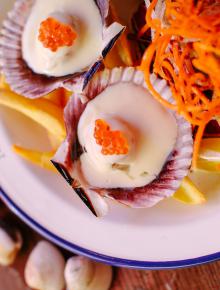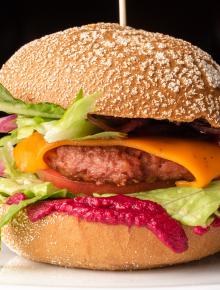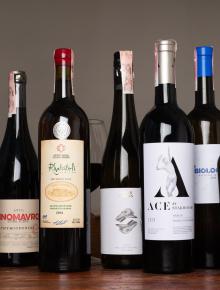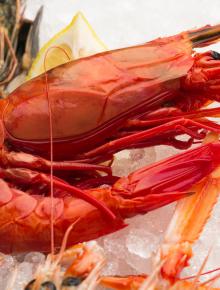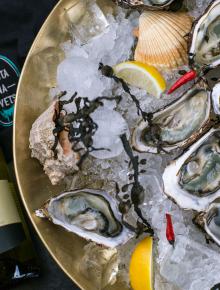Natural wine. Organic. Biodynamic. What it means and where to find Ukrainian
Biodinamic wine tasting. Biologist wine (Ukraine)
March, 19
Buy tickets
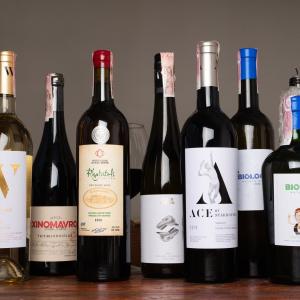
Natural wines festival started at restaurant of new Ukrainian cuisine "Kanapa". There are some interesting samples from Ukrainian wineries. And we already took care of the food paring. Before the festival, a meeting with restaurant sommelier Yulia Trigidko was held to find out what “natural wine” means after all, whether it is worth its money and what it should be combined with for maximum pleasure.
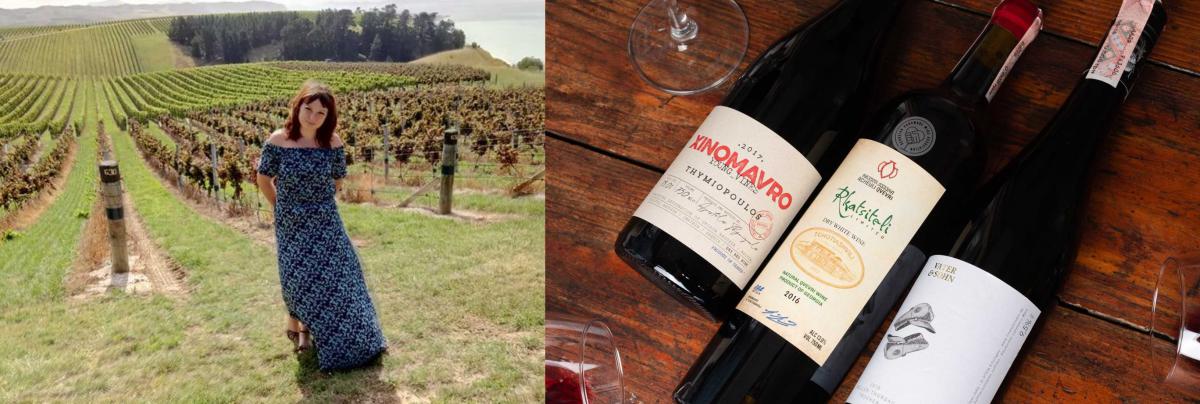
- Let's start with the terms. What is "natural wine"? And organic? And biodynamic?
- Let's start with organic wine. There was a lot of talk about this trend a few years ago, and it has long gone beyond a narrow range of experts. First and foremost, it is said that no chemical fertilizers are used when growing grapes. And in general, the very approach to winemaking is what it was about a hundred years ago: a minimum of machine intervention, a maximum of respect for nature.
The biodynamic approach goes even further: when creating wine, the phases of the moon and various "cosmic" rhythms are taken into account, specific organic fertilizers are used and, of course, maximum of manual operations. Nature is perceived as a living creature with which to obtain quality wine it is necessary to build a harmonious relationship.
***
- What about natural wine? What is wine not labeled this way made of?
- With "natural" wine there’s a lot of confusion. First, all the wine on the market is made from natural grapes. All that is written about "powder wines" is a myth. The issue is the quality of the berries and the technology of production, but even the cheapest wine on the shelves of supermarkets is made from real grapes.
There are many requirements for “natural wine”, with universal criteria still lacking. If the term "organic wine" implies the biochemical purity of the vineyards and, in general, concentrates on the process of growing grapes, then the concept of "natural wine" covers all stages of production. In particular, it is about reducing or eliminating the use of sulfur dioxide and the use of wild yeast.
***
- Does all that affect the taste?
- Yes. Of course, the legend and history around wine is very important. But even when it comes to blind tasting, there are "biodynamic" and "natural" wines that are definitely delighting. Another issue is that it is usually about a particular philosophy, values, and outlook. The whole set of factors is important, and it is difficult to distinguish between rational and emotional.
I have tried many outstanding biodynamic wines, they were simply fantastic. So, I want to say that this approach works. But we do not know if the same wineries would have the same wonderful wines if the winemaker did not take into account the phases of the moon or buried a horn of fertilizers in the ground on a certain day. Maybe. Are there any biodynamic wines that are worth consideration? Of course, there are.
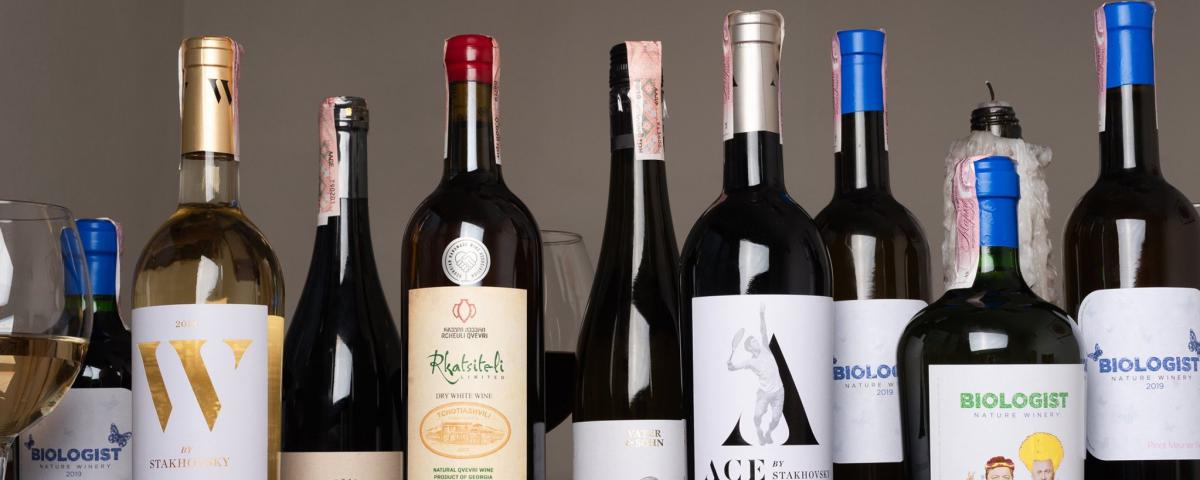
***
- But they often say that "natural wines" is a marketing move. A higher price, a "hype story" that is not backed up by quality.
- And here everything, as always, depends on the honesty of a particular winemaker. There are still no clear criteria, there is room for manipulation. For example, the use of sulfur. Somewhere it is not used at all, somewhere there are limitations. Limitations can also be different: the sulfur content of a particular bottle or the extent of its use by the winery as a whole. And then there are the questions of transporting and storing such wine.
There are many questions. There are many doubts. However, all this cannot counterbalance the fact that some "naturalists" make outstanding wines.
In this case, some use "naturalness" as a marketing hook, and some do not focus on it when communicating, but, in fact, do everything according to these principles and standards.
***
- But the trend does sell? Right?
- Yes, and there's nothing wrong with that. Someone loves antiques. Someone who loves nostalgic phone design is reminiscent of good old Nokia that couldn't be broken.
The idea of a "return to the roots" is reflected in all industries. And in the making of wine. This is a well-known story of the "good old days".
***
- How did you choose wines for the Kanapa Natural Wine Festival?
- I chose wines that are first and foremost interesting, even without reference to their organic origin. First and foremost, these are great just great delicious drinks.
For example, "Water & Sohn" by Muller-Thurgau. An autochthonous grape variety in Germany, almost a visiting card of the country. At the same time, it is a new grape variety for our wine list. It is certain that guests of "Kanapa" will enjoy it. The producer is a family-owned winery in the north of Bavaria, which produces natural wines. This is an extremely juicy wine. With a nostalgic touch in taste. I am sure that everyone who used to eat baked apples in their childhood, for example, will understand what I mean. The wine goes well with the goat cheese appetizer with hibiscus and the lazy cabbage rolls with kohlrabi.
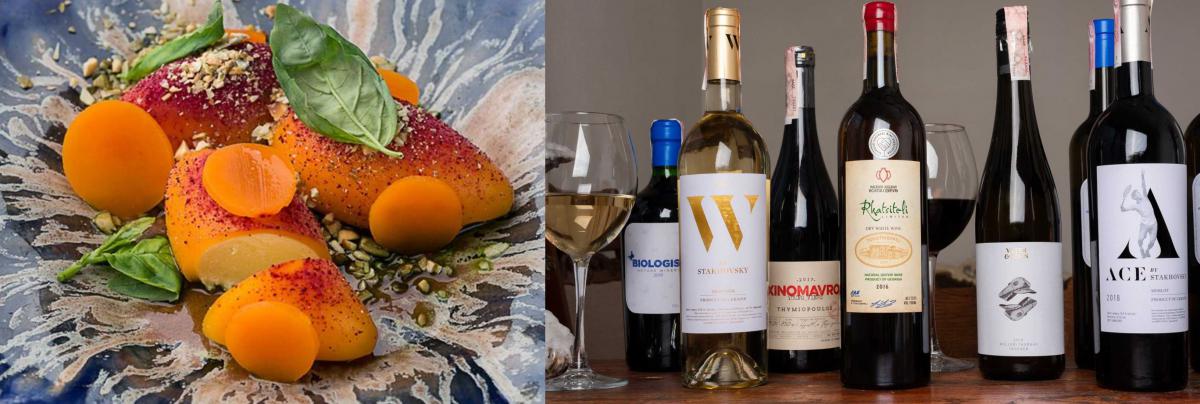
There is wonderful orange wine from Georgia. Rkatsiteli. It has everything we love about orange. It is interesting, rich and at the same time quite understandable. It is a wonderful drink that combines two trends - orange and natural wines.
The third wine is from Greece. Generally, only two wines from Greece are on the Kanapa’s wine list, this is the third. Greek wines are interesting as they are. And this wine from a very popular variety of xinomavro is also made by natural technology. I highly recommend trying it.
***
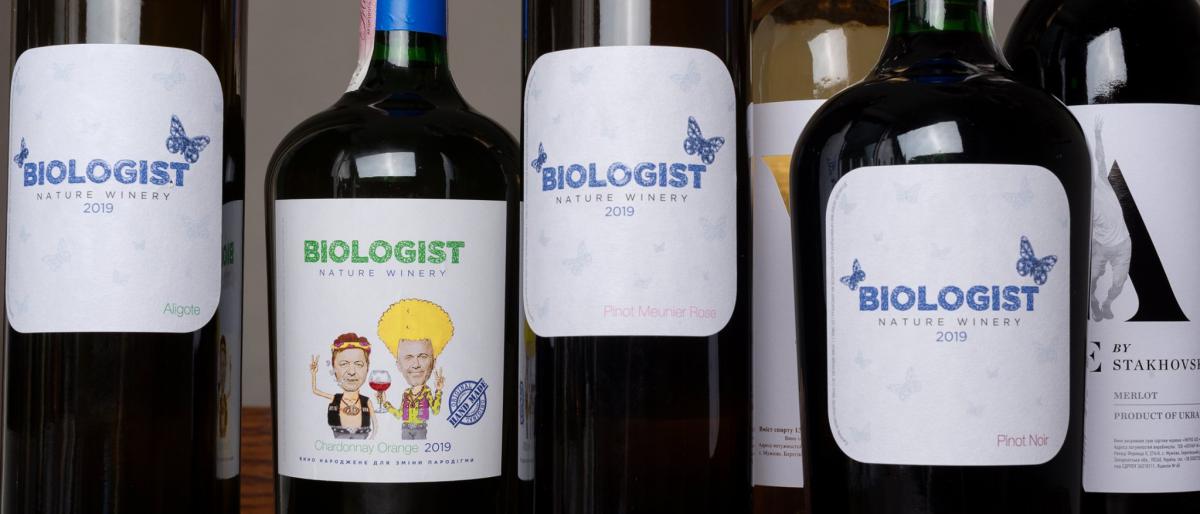
- Are there any Ukrainian natural wines?
- Yes, this is Biologist winery biodynamic wine. And here's the interesting thing. This winery is located in the Kiev region, not in the south or west of Ukraine. In fact, there are many great winemakers in the region, but they can usually only be found at specialized exhibitions. And this is about licensed production, and it's very comforting. Secondly, I am pleasantly impressed with the quality level.
The first wine is an aligote. Unfiltered white wine from an awesome grape variety. For some reason, it is not used much now. It is incredibly fresh and at the same time warm, spring wine. It tastes of herbs and wildflowers. That very feeling of spring and blossom. I think this will be one of the hits of the season.
Pink pinot meunier. Bright. Juicy. Impressive. Aroma of roses and strawberries, and balanced acidity. All you need to really enjoy.
Biologist's pinot noir is unlike any other Ukrainian pinot noir. If you have ever tasted wine, like one by Trubetskoy's wineries, you should remember that it is an extremely rich drink. Don Alejandro Winery's pinot noir is quite acidic, fresh. And this wine is something in the middle. Gorgeous wine, in somewhat American style. It is certain that lovers of this variety will be delighted that the pinot noir can be like that - sweet and a very fresh.
Chardonnay Orange. Usually, orange wines are made from rkatsiteli. It is even more interesting to try chardonnay made with this technology. It is a wonderful golden drink with many dried fruits tones. I strongly advise.
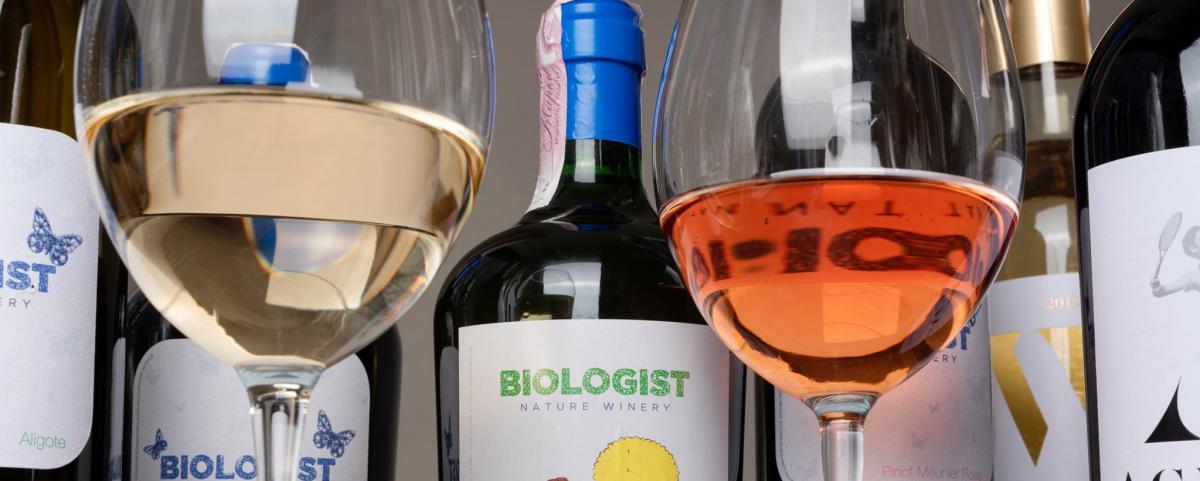
Where to try: Kanapa, St. Andrew's Descent, 19A
Phone number for reservations: 068 044 30 50
Biodinamic wine tasting. Biologist wine (Ukraine)
March, 19
Buy tickets



